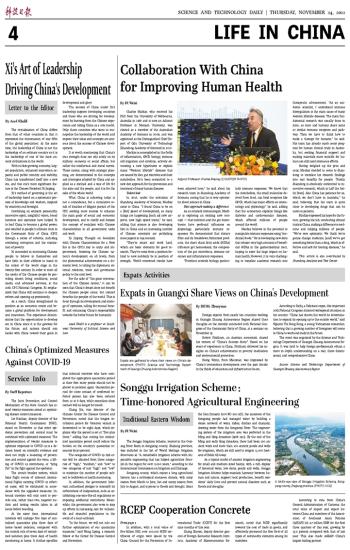
The Joint Prevention and Control Mechanism of the State Council has issued twenty measures aimed at optimizing disease control measures.
Lei Haichao, deputy director of the National Health Commission (NHC), stated on November 12 that strict epidemic prevention and control must be combined with optimized measures. The implementation of twenty measures to optimize responses to COVID-19 is a decision based on scientific evidence and does not imply a loosening of prevention and control against the virus, a lifting of COVID-19 restrictions, or "lying flat" in the fight against the epidemic.
The circuit-breaker system, which bans flight routes of inbound international flights carrying COVID-19 infected cases, will be eliminated in accordance with the upgraded measures. Inbound travelers will only need to provide one, rather than two, negative nucleic acid testing results taken in 48 hours before boarding.
At the same time, international travelers will undergo five days of centralized quarantine plus three days of home-based isolation, compared with the current rule of seven days of centralized isolation plus three days of health monitoring at home. It further specifies that inbound travelers who have completed the appropriate quarantine period at their first entry points should not be placed in isolation again. Quarantine period for close contact of confirmed infected person has also been reduced from 10 to 8 days, while secondary close contact will no longer be traced.
Chang Jile, vice director of the Chinese Center for Disease Control and Prevention, noted that the longest incubation period for Omicron variant is determined to be eight days, which explains why the period is set at "five plus three," adding that cutting the centralized quarantine period could reduce the burden on the country's quarantine resources by 30 percent.
The categories of COVID-19 risk areas will be adjusted from three categories of "high," "medium," and "low" to two categories of just "high" and "low" to minimize the number of people subject to lockdown or health monitoring.
In addition, the government (relevant authorities) pledges to intensify its enforcement of malpractices, such as establishing one-size-fits-all regulations or imposing additional restrictions. Meanwhile, the government also vows to step up efforts in increasing care for vulnerable and stranded populations in the event of a local outbreak.
"In the future, we will not rule out further optimization of our quarantine measures," said Wang Liping, a research fellow at the Center for Disease Control and Prevention.







